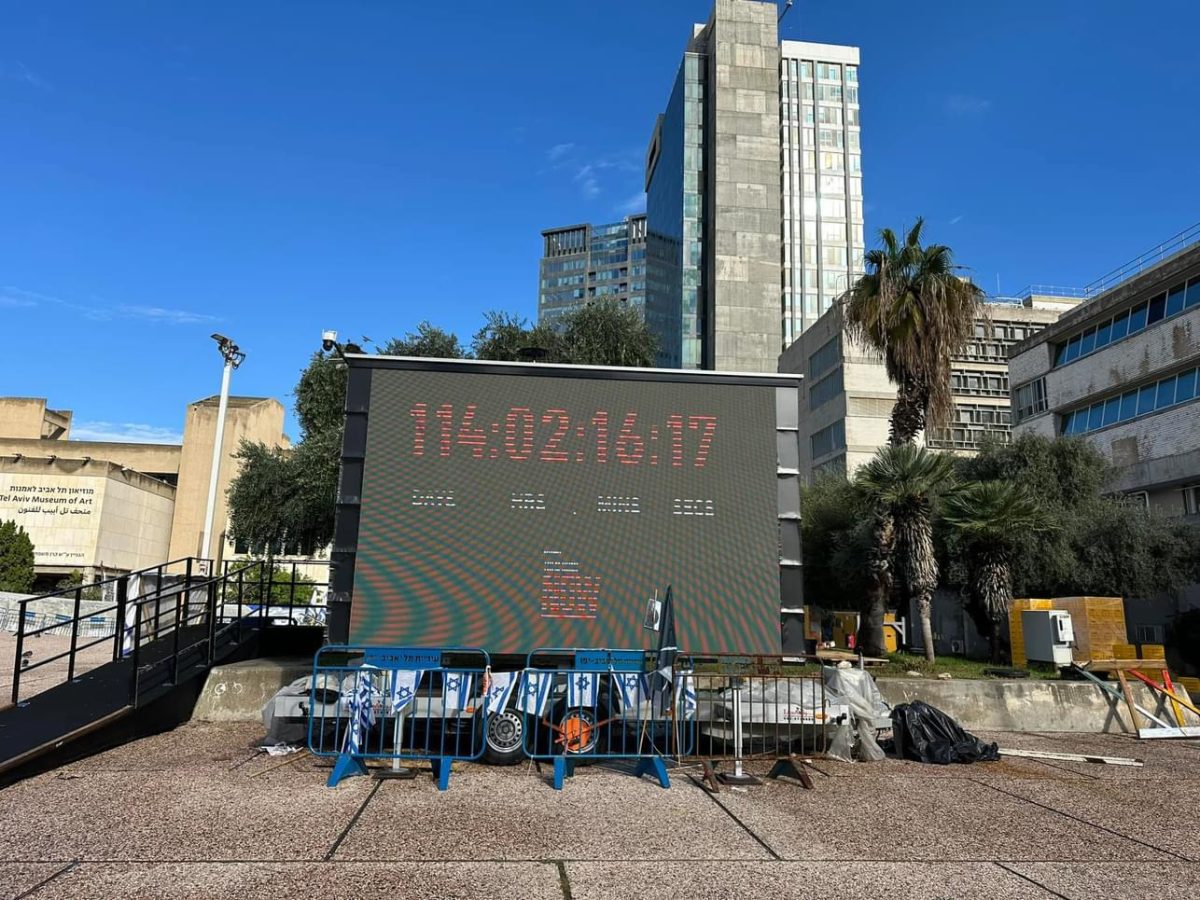Rabbi Estelle Mills, who leads Plymouth’s local synagogue, Congregation Beth Jacob, last week traveled with a group of more than 30 rabbis from around the U.S. on a solidarity mission to Israel. Mills is touring several parts of the country on the 10-day trip and will share some of her experiences on the Plymouth Independent site. This is her second journal entry.
I arrived in Israel on Friday afternoon just in time to get ready for Shabbat and dinner with my extended family. In Israel, Shabbat, the Sabbath day, is a special one even for those who are secular. It always moves me to see the entire country revolving around Jewish time. All the stores close, the buses stop running, and the everyone enjoys a day off in whatever way they observe it. It is a time for eating, playing board games, and real intergenerational conversation.
My extended family in Israel all gathered and it was truly a microcosm of Israeli society. The family has expanded to include both Ashkenazi, Jews of Eastern European descent, and Mizrahi, Jews of Northern African (Moroccan and Yemenite) descent as well as those who made Aliyah (immigrated) from the United States in the aftermath of the Yom Kippur War. Politically, my family represents both sides of the huge schism that existed in Israel prior to October 7 with some being passionately pro Labor party (Liberal/left-wing) and others just as passionately pro Likud (Conservative/right-wing) party. When I last visited in February 2023, the political turmoil resulting in massive protests in the streets was dividing families, but Oct. 7 has truly put all the divisiveness on hold.
Freeing the hostages and returning, if possible, to some semblance of safety has become the common goal of all. There may be mention of how much some dislike Netanyahu, but now more as friendly banter. Knowing that nearly everyone has family members fighting in Gaza or in the north and that these individuals, young and old, from all backgrounds and political leanings, are fighting side by side to ensure the safety and survival of Israel takes precedence over all else.
Around piles of homemade, delicious food, the conversation centered on the war. While in the U.S. we tend to shield our children from such discussions, we talked freely in front of all the children. The youngest, a seven-year-old boy, told the story of playing this past week with a friend in the park across the street while his mother was inside working. The sirens went off and since the boy was not allowed to cross the street by himself to get to the family’s bomb shelter, he and his friend went into the bomb shelter in the park. His mother got a little panicked when she opened the door to look for them but then quickly realized he had probably done exactly what he was taught to do – go to the nearest bomb shelter.
At some point, our conversation turned to Oct. 7. My religious family had silenced their phones since it was Shabbat and would probably not known about the atrocities until that evening when Shabbat ended. This night, their 14-year-old happened to be sleeping over at a friend’s home about an hour to the south of their home, and he became frantic when he heard all the sirens, eventually reaching his sister to find out what was happening. The sirens in the Tel Aviv area were much more sporadic, and my cousins had been ignoring them even though family had come that morning to seek refuge in their bomb shelter. But they left the shelter after the recommended 10 minutes of sheltering, thinking the danger was over, completely oblivious (as was most of the country) to the unprecedented scope of the attack that morning. Everyone knows someone who was killed or taken hostage. The ripple effect has left no Israeli unscathed.
Dinner conversation also includes how my extended family have been affected since Oct. 7. The oldest of the cousin’s kids had completed his three-year stint in the IDF (Israeli Defense Forces) just a few months before Oct. 7, but was called up for reserve duty almost immediately after the attack. He spent most of the last 100 days serving in the north and although just released from army service for the second time, he expects to be called up again in the next month or two.
His sister and cousin, both 18, shared with their parents and grandparents how their week had been. One is training to become an army medic and had learned how to apply tourniquets this past week. The other had chosen a year of national service, rather than the army, and was stationed down south, working with the children of families evacuated from their homes. Both women left as soon as Shabbat ended Saturday evening to report to their respective service post on Sunday morning (a normal workday in Israel).
Despite the somewhat morbid tenor of our Shabbat dinner conversation, we ended our dinner with prayers and singing, and I was filled with feelings of peacefulness, love, and happiness to be once again in Israel, among family celebrating Shabbat and enjoying a fantastic meal. The four young children (under 7) of my cousin’s brother-in-law had freely been coming and going from their house next door all night and their laughter and child’s play added to my feeling of tranquility.
As I continue my visit, I see stark reminders that the over 100 hostages cannot experience Shabbat right now. I hope and pray they will again.

